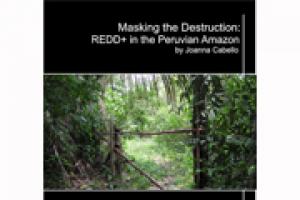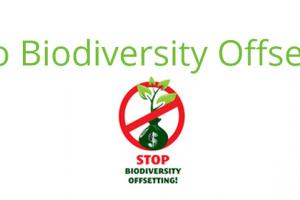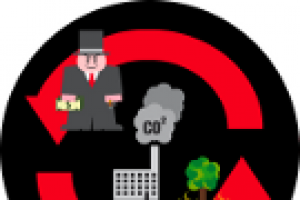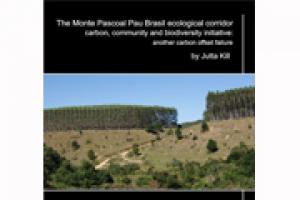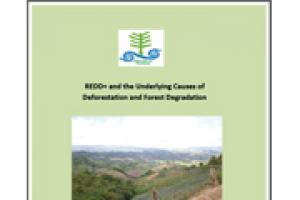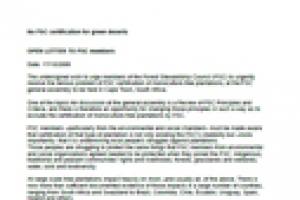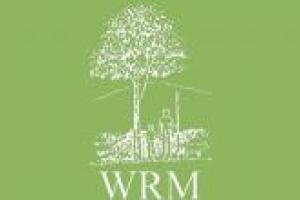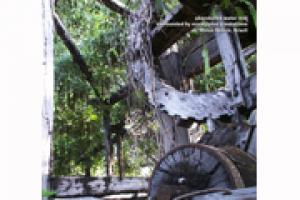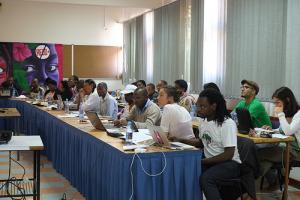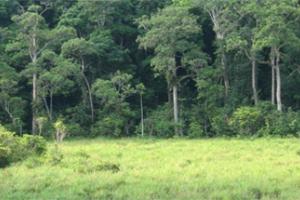By Joanna Cabello, World Rainforest Movement
The Green Economy
The Green Economy is a tactic used to “clean up” the image of corporations rather than address corporate capture and capitalism as the true drivers of deforestation. False solutions promoted under the Green Economy include certification, sustainable forest management, ecosystem services, REDD+, the bioeconomy, nature-based climate solutions, and zero net deforestation. Rather than stopping it, these “solutions” support corporate-driven destruction that is causing a deep social and ecological crisis.
Action alerts
20 November 2013
Other information
19 November 2013
To coincide with the COP19 UN climate negotiations in Warsaw, Greenpeace has released a short briefing explaining why forests cannot offset fossil fuel emissions.
By Greenpeace, November 2013
Publications
17 November 2013
by Jutta Kill, World Rainforest Movement.
Document published in "Leyes, políticas y economía verde al servicio del despojo de los pueblos" (Laws, policies and green economy at the expense of communities dispossession) special compendium of the "Biodiversidad sustento y culturas" (Biodiversity livelihoods and cultures) magazine carried out jointly by Alianza Biodiversidad, World Rainforest Movement (WRM) and Friends of the Earth Latin America and the Caribbean (ATALC) in December 2013.
Other information
13 November 2013
The Global Forest Coalition launched a new report on 'REDD+ and the Underlying Causes of Deforestation and forest Degradation' based on five case studies in Brazil, Colombia, India, Uganda and Tanzania elaborated by national organizations in those countries themselves. It was launched at the 19th Conference of the Parties of the Climate Convention in Warsaw.
Action alerts
12 November 2013
Media release of La Vía Campesina | GRAIN | ETC Group.
7 November 2013. Farmers produce food, not carbon. Yet, if some of the governments and corporate lobbies negotiating at the UN climate change conference to be held in Warsaw from 11-22 November have their way, farmland could soon be considered as a carbon sink that polluting corporations can buy into to compensate for their harmful emissions.
Action alerts
7 November 2013
This statement is open for signatures from organizations, groups, networks, associations, collectives! To sign up please send an email to: nobiodiversityoffsets@gmail.com
“No to Biodiversity Offsetting!”
7 November 2013
The 19th session of the Conference of the Parties to the UNFCCC and the 9th session of the Conference of the Parties serving as the Meeting of the Parties to the Kyoto Protocol will take place from 11 to 22 November. The conference will be held in Warsaw, Poland.
Other information
31 October 2013
Publications
29 September 2013
For many years WRM has been denouncing the FSC certification of monoculture tree plantations. The scale of these monocultures is one of several reasons for such opposition. Large-scale tree plantations occupy vast areas of land leading to displacement of communities, they consume huge amounts of water and soil nutrients and require enormous amounts of agrochemicals. These characteristics make them intrinsically unsustainable and therefore they can’t be certified as ‘sustainable’.
Declarations
21 September 2013
The NO REDD in Africa Network gathered here in Maputo Mozambique, on 26 August 2013 during the occasion of an international workshop on REDD with participants from Mozambique, other African countries, North America and South America deliberated on the implications of Reducing Emissions from Deforestation and forest Degradation (REDD) for Africa and by extension the global South.
Action alerts
20 September 2013
